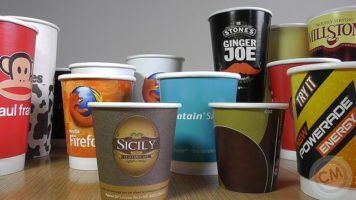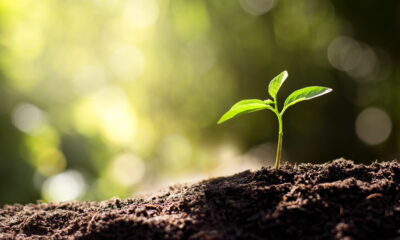

Environment
Cupifesto Launched To Tackle Throwaway Cups Waste
Today civil society organisations around the world are raising awareness regarding the dangers to people, forests, water and the climate that throwaway cups cause.
The Environmental Paper Network (EPN) is launching its ‘Cupifesto – A Manifesto for No Throwaway Cups’ urging drinks retailers and politicians all over the world to stop encouraging a throwaway culture, by ensuring all cups are reusable.
Mandy Haggith, co-ordinator of the Environmental Paper Network said, ‘Throwaway cups, whether made of paper, Styrofoam or plastic, are an icon of wasteful resource use, and of the unthinking acceptance of ever increasing volumes of disposable commodities. It is unacceptable that we drink from single-use vessels instead of beautiful pottery, tough plastic or elegant steel. The Cupifesto is a call to fast food and drinks companies and politicians to ensure everyone has the option of drinking tea and coffee from reusable vessels. Our message is simple – no throwaway cups.’
At least 58 billion throwaway cups are used each year globally, using more than a million tonnes of paper. Their production requires 32 million trees, 100 billion litres of water (that’s 43 thousand Olympic swimming pools) and emits as much greenhouse gases as half a million cars. Hardly any throwaway cups are recycled.
Several EPN member organisations are campaigning on paper cups on this international day of action, including NGOs in Germany, USA, Australia, China and Finland.
Jannis Pfendtner of Robin Wood, Germany, said, “More than 10 billion throwaway cups are used in Germany each year – the waste issue is huge! Many companies such as the German bakery BackWerk do not even have ceramic or reusable dishes anymore.”
Wasting precious wood for a cup, which is only in use for a few minutes, is crazy.
The North American group Stand has launched a “Better Cup” campaign targeting Starbucks. Their Executive Director, Todd Paglia, said, “Starbucks coffee cups destroy forests and our climate. It’s time Starbucks provide sufficient incentives to motivate their customers to bring their own cups, and make their cups fully recyclable everywhere.”
Peg Putt, Chief Executive Officer of Markets for Change, Australia, said, “We’ve launched a ‘cup conscious cafe’ movement in Australia to indicate that cafes welcome reusable cups, and most cafes in central Hobart, Tasmania have already joined. They proudly display the cup conscious cafe sticker to inform customers.”
The Environmental Paper Network (EPN) is a coalition of more than 140 environmental and social non-governmental organisations from 28 countries, who all share a Global Paper Vision for sustainable future paper production and use. The first pillar of this vision is to reduce global paper consumption.
The Cupifesto is published with relevant background information and resources here: http://www.environmentalpaper.eu/cupifesto


 Environment12 months ago
Environment12 months agoAre Polymer Banknotes: an Eco-Friendly Trend or a Groundswell?

 Features11 months ago
Features11 months agoEco-Friendly Cryptocurrencies: Sustainable Investment Choices

 Energy11 months ago
Energy11 months agoThe Growing Role of Solar Panels in Ireland’s Energy Future

 Energy12 months ago
Energy12 months agoHow Renewable Energy Can Help Combat Climate Change, According to Indra Energy




























